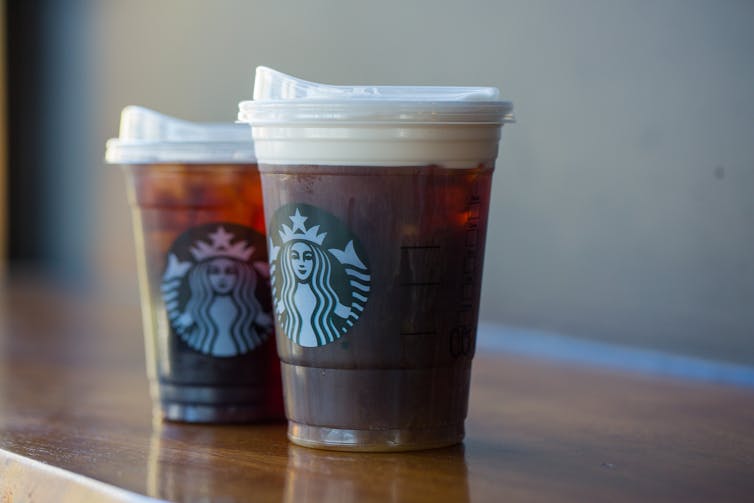This article was originally published on , which features includes relevant and informed articles, written by researchers and academics in their areas of expertise and edited by experienced journalists.
is a graduate student at ���ϳԹ���. is an assistant professor in Resource and Environmental Studies at ���ϳԹ���.
The “straw bubble” has burst.
We’re midway through 2018, and we have seen an explosion of efforts and local action to eliminate plastic straws. Some of the world’s largest companies, including and , have banned them from some of their operations.
�ѳ��ٴDzԲ�����’s announced recently that it would . Similarly, Starbucks will .
Airlines, hotel chains and local restaurants in droves are all removing the ubiquitous plastic from their consumer services.
Dramatic and evocative statements and statistics, including the infamous “” prophecy, are inciting some incredible interventions from governments, large multinationals and individual citizens. Although these kinds of statements , the overwhelming response has been the removal of straws from day-to-day society.
Anti-straw backlash
Along with these recent “anti-straw” endeavours, there comes an accompanying “anti-anti-straw” rhetoric that opposes such interventions on various grounds.
For instance, disability rights activists have weighed in on the plastic-straw ban. Some people with disabilities need straws to drink because they have trouble swallowing or cannot lift or hold a cup.
A plethora of alternatives to plastic straws exist to provide practical solutions, including silicone, paper and stainless steel. Ultimately, this means all consumers have an ethical choice to make: ?
We don’t contest the importance of accessibility, which is why we do not argue in favour of an absolute outright ban on straws. Rather, we believe that “.”
The anti-anti-straw arguments we take issue with are often either libertarian (hands off my straws) or pessimistic (this does not address the root cause of the problem) in nature. Some of these arguments are a mix of both.
Read more:
A have recently put forward to interventions seeking to reduce ocean plastics. They write that targeting straws specifically will not make a significant difference to the ocean.
Quantitatively, sure, straws make up a small portion of the plastics that enter and contaminate the ocean (). This does not mean, however, that straws aren’t worth addressing.
Why is a targeted effort towards four per cent of marine litter being attacked as useless or ineffective, when the posited alternative is no effort at all?
Target “gateway plastic”
Great Canadian Shoreline Cleanup’s annual highlights the items most commonly found on . Straws rank ninth, below cigarette butts, food packaging, bottle caps and plastic bags.
Other . The also ranks straws and stirrers in seventh place for plastics found in the environment.
However, these other plastics require an entirely different approach to mitigating their entry into the environment.

Should we focus on an outright ban on cigarettes with the same vigour as we have straws? Can we vilify single-use plastic bottle beverage industry players in the same manner?
Presumably, those who are anti-anti-straw would respond accordingly, if not an order of magnitude greater, to these kinds of petitions.
War on straws
Dune Ives, the executive director of the Lonely Whale Foundation, for those on the verge of environmentalism. For example, something as mundane or “playful” as a straw can open up a larger, more serious conversation about plastic pollution, or global mass consumption even more broadly.
This point is both the crux of the “war on straws” and the crucial piece moving forward in the overall endeavour to reduce marine plastic pollution: .
Comparisons may also be made with plastic bag bans. For example, many to reduce plastic environmental pollution.
Like plastic straws, some groups suggest . These groups also claim that banning plastic bags is more about appearances and idealism than about protecting the environment. However, like plastic bag bans, the concept of eliminating or replacing single-use plastic (SUP) straws requires a revolution in consumer mentality.
Changing habits
There is no radical extreme call to immediately stop the production of plastic products. Indeed, to get more people on board.
Plastics are imperative in many contexts, including sterile packaging and disposable tools in medicine, reducing food spoilage and increasing food safety. The movement to remove SUP straws, or even bags, should consider these nuances, but it is far from destroying the foundation of modern society.
With about , there is an urgent need to .
We need a broad-scale and widespread approach that questions our throw-away culture, and the overwhelming trend to buy more, buy bigger and buy more often. Avoiding the use of a plastic straw may seem trivial, but it counts.
![]() It may seem like a drop in the ocean, but what is an ocean anyway but many, many, drops?
It may seem like a drop in the ocean, but what is an ocean anyway but many, many, drops?
Read the on The Conversation.
���ϳԹ��� is a founding partner of The Conversation Canada, a new-to-Canada online media outlet providing independent, high-quality explanatory journalism. Originally established in Australia in 2011, it has had more than 85 commissioning editors and 30,000-plus academics register as contributors. A full list of articles written by ���ϳԹ���academics can be found on .

